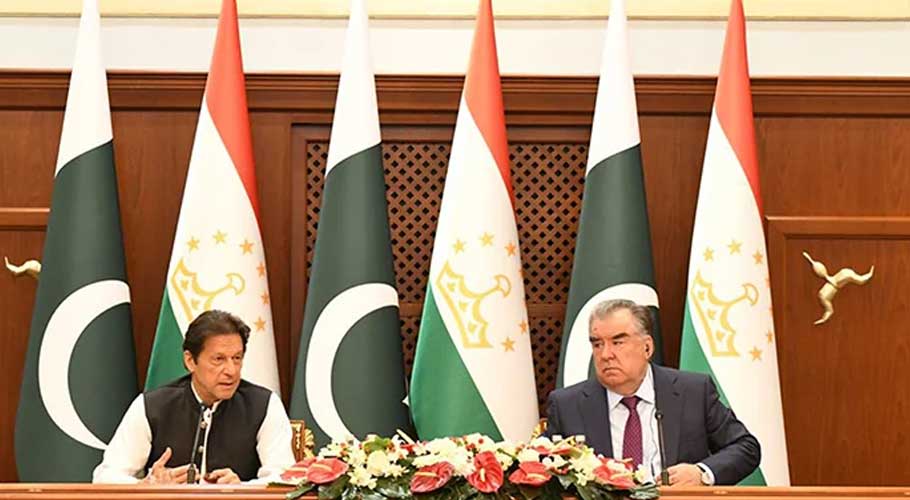DUSHANBE: Prime Minister Imran Khan on Friday asserted that three terrorist organizations were still operating in Afghanistan against Pakistan after the Taliban had assured the Afghan soil would not be used against any state.
Addressing a joint press conference along with Tajikistan’s President Emomali Rehman in Dushanbe, the prime minister did not mention name of the terrorist organizations, while urging the new Afghan government to take action against terror groups.
The Prime Minister further said he would try to convince the Afghan Taliban as there were concerns about the situation in Panjshir. “Pakistan and Tajikistan wanted the issue in the valley to be resolved through talks,” he added.
On the other hand, President Emomali Rehman said that he would use his influence in bringing the Tajik leadership of Afghanistan to the negotiating table to resolve their differences peacefully.
The two leaders also had wide-ranging deliberations covering all aspects of the mutually beneficial bilateral cooperation, and regional and international issues of common interest during the tete-a-tete and delegation-level talks.
Pakistan and Tajikistan expressed their readiness to expand cooperation in transport, according to a joint statement issued after the two leaders met.
“They agreed to strengthen mutually beneficial cooperation in transport infrastructure corridors for bilateral and transit trade between the two countries and creation of favourable conditions for the transportation of goods through the territory of respective countries,” the statement said.
It continued, “They particularly noted the importance of the construction of railways and highways from Tajikistan to Karachi and Gwadar seaports of Pakistan and the need for integration of Tajikistan with regional transport projects.”
The two leaders agreed to regularly convene the meetings and follow up on the decisions of the permanent economic mechanisms for mutually beneficial cooperation at the earliest, the statement further said.
“The two leaders attached particular attention to strengthening the scientific, technological, and cultural cooperation. The parties noted the need to further expand cooperation in health, pharmaceutical, medical, natural disaster management and emergency sectors, including through joint ventures in Tajikistan and Pakistan.”



































